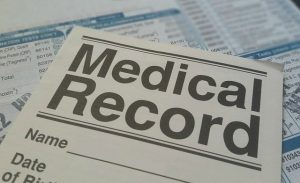Federal law strictly protects medical records for each individual in the U.S. The Health Insurance Portability and Accountability Act, or HIPAA ensures that intensely private information cannot be misused or improperly shared. A person’s right to privacy under HIPAA extends until 50 years after their death. However, sometimes relatives need access to the deceased person’s medical records. The information contained in these records may be useful when it comes to predicting what sorts of hereditary ailments the patient and their doctor need to be aware of. There are essentially two methods for obtaining these records.
The Personal Representative or Executor
When someone passes away and leaves behind a will, the document typically appoints a personal representative or an executor for the estate. The right to access personal medical records passes from the individual to the executor after their death. State laws, operating within overall HIPAA guidelines, largely determine precisely how medical records may be obtained. Usually, the personal representative or executor must submit pertinent documents such as:
- Copies of the will
- A medical power of attorney
- Other papers that support their position as executor
Some states may require filling out and submitting forms. Medical records can usually be obtained through state or county government offices or even through the hospital. Individuals other than the personal representative or executor may ask that person to obtain copies for them.

If a person dies without having made a will, most states recognize their nearest surviving relative as their personal representative or executor, this may be a:
- Spouse
- Parent
- Sibling
- Child
- Other closely related family members
Depending on the state’s practices, this person may need to go through extra steps in order to obtain access to their deceased relative’s medical records. Once again, county and state health departments can be helpful in this quest. The hospital where the relative passed away may also be able to offer assistance.
Doctors May Access Medical Records
Physicians and other health care practitioners have long been aware that knowing a relative’s medical history can be enormously informative as far as the care of their patients. Accordingly, a doctor may make a request for medical records on another individual. HIPAA rules do not require that a physician be authorized by the estate to do so. Since doctors must already possess sophisticated knowledge of the applicable privacy laws, HIPAA permits access to medical records for appropriate purposes. You can also have a look at How to transfer a car title when the owner is deceased.


